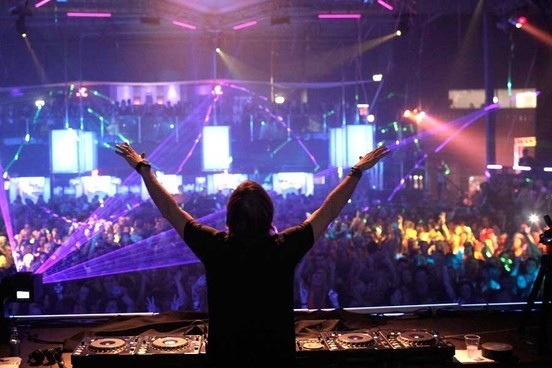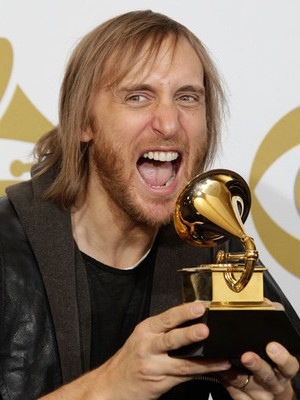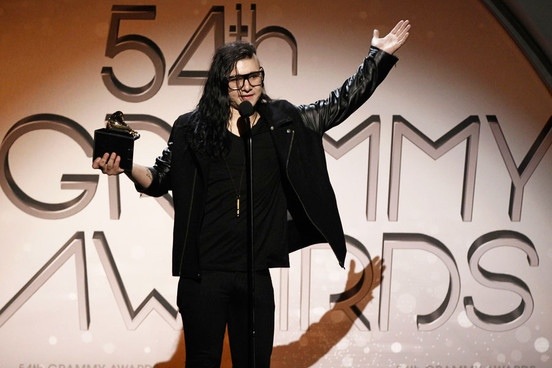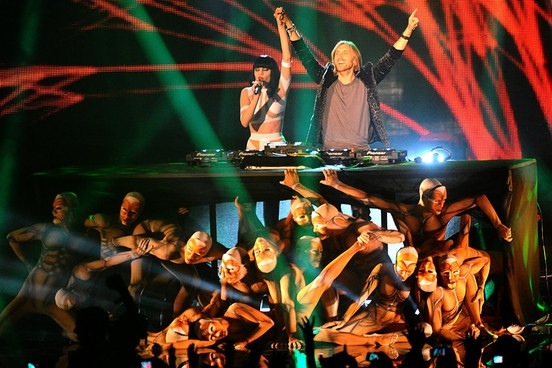In the 90s, dance music was an unstoppable force – buoyed by chart success, huge consumer interest and a strong global economy, money flooded the scene. It was the age of the superstar DJ, those fortunate souls who could demand extortionate fees to appear at superclubs like Cream and Gatecrasher.

Check out the rest of this article from NME on the age of DJs after the jump.
Fast forward to the present day and dance music is once again on the rise, ushering in a new era of ‘pop star DJs’. It’s a distinctly different culture, far removed from the underground clubs and warehouses where electronic music finds its home, geared more towards the commercial end of the club market. But the money is just as good as it was in the superclub era, if not better.
In recent years dance music has once again exploded, this time taking the commercial charts by storm with global superstars like Rihanna and Lady Gaga reappropriating the sounds of the underground. Meanwhile, those who’ve been producing and playing the music behind these stars have been thrust into the limelight. David Guetta is the poster boy for mainstream dance music, working with everyone from Nicki Minaj and Flo Rida on ‘Where Dem Girls At?’, Rihanna (‘Who’s That Chick?’) and Kelly Rowland (‘When Love Takes Over’).

Hated and respected in equal amounts, the Frenchman has, to some, bastardized the culture. But with Guetta’s kind of success comes financial gain and, according to several sources, he can now demand upwards of £100,000 per appearance. With his chart success, F*** Me, I’m Famous club/clothing brand and multiple appearances around the globe, Guetta’s net worth is said to be around £20 million – he can afford his own private jet, which pretty much says it all.
Admittedly things have moved on since the 90s. Whereas previously it was generally enough to have a huge following, and be able to mix records, these days making one’s own music is what boosts the modern DJ’s pay packet. Look at Skrillex, another controversial figure who took the dubstep sound and made it all his own, building a huge global following in the process. By no means a DJ in the Pete Tong mould, Skrillex (who recently picked up three Grammies) now gets top billing at festivals around the world.

This pattern repeats itself with many of the top-earners within the commercial electronic music domain. Popstar DJ/producer, deadmau5 is also said to coin it in every festival season, and trance king Tiesto has been paid £80,000 to appear at a club in Magaluf. According to the LA Times, Tiesto has been known to charge up to £250,000 for a single performance.
But it’s for good reason, at least in the promoters’ eyes – Guetta sold out the 10,000 capacity Alexandra Palace last week, while his counterparts the Swedish House Mafia will undoubtedly sell out their huge 65,000 capacity show at the Milton Keynes Bowl in July. DJ fees are relative to the crowd they can draw and the profit promoters can make from them, so it makes perfect sense that those who call pull in over 50,000 people (paying up to £40 each) would receive a fee of £100,000.

While the world’s charts are gripped by an invasion of euro-dance pop, the underground is also burgeoning and its bigger stars are benefiting. According to one report, techno legend Sven Vath received 50,000 Euros for an appearance at a big event. Fees are going through the roof according to one promoter, who preferred not to be named. “I’ve actually been saying to people, ‘Is it the 1990s?’ recently because some of the demands are so high,” he told me, adding:
What we’re seeing now is a new era where DJs are the new popstars, a bit like when hip-hop was accepted by the mainstream and rappers became popstars. Dance music has crossed over massively and it just so happens to be DJ-led.
Last month DJ Fresh secured his second No. 1, while at this year’s Grammys Guetta and Deadmau5 appeared on stage with Chris Brown and Foo Fighters, and Skrillex took three awards. Sorry, guitar bands. It’s boom time for dance music, and the good times look set to roll for quite some time yet.


Yeah bookmaking this wasn’t a bad conclusion outstanding post! .